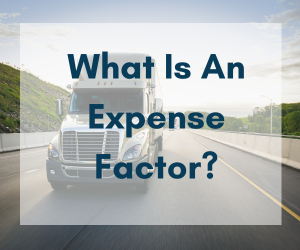What Is an Expense Factor?
In simple terms, an expense factor is a percentage rate lenders use to estimate the operating expenses of a self-employed borrower or business owner. Instead of analyzing every single invoice, receipt, or utility bill, the lender applies an established percentage—often based on industry standards—to calculate your net income.
Example
If you earn $100,000 in gross revenue annually and your industry’s expense factor is 30%, the lender will automatically subtract $30,000 as business expenses. That leaves you with a net income of $70,000 for qualification purposes.
Why Does Industry Matter?
Not every industry is created equal in the eyes of mortgage underwriting. Some businesses inherently require more overhead (rent, supplies, staffing, marketing, insurance, etc.) and thus have higher expense factors. For example, a restaurant owner might face more day-to-day operational costs than a freelance consultant who primarily needs a laptop and an internet connection.
Below are a few hypothetical industry scenarios to illustrate how expense factors vary:
- Restaurant Owners: May have a higher expense factor (35%–50%) due to food costs, staff wages, rent, and utilities.
- Trucking/Transportation: Fuel, vehicle maintenance, and insurance costs can be significant, resulting in a moderate to high expense factor (30%–45%).
- Freelance Professionals (e.g., Consultants, Writers): Usually have fewer overhead expenses. A lower expense factor (20%–30%) is more common.
- Service-Based Businesses (e.g., Hair Stylists, Realtors): Overhead depends on rent for a chair/booth, marketing, and equipment. Expense factors can range widely (25%–40%).
Understanding your industry’s typical expense factor gives you realistic expectations for the income figure a lender might use for your loan approval.
How Expense Factors Affect Your Loan
- Reduced Qualified Income
- A high expense factor can significantly reduce the income number used to qualify. Even if you’re bringing in excellent gross revenue, the mortgage lender might only give you credit for your net (after expenses) if your industry carries a large overhead.
- Higher Debt-to-Income (DTI) Ratio
- If your qualified income is lower due to a high expense factor, it can push your DTI ratio higher. A higher DTI can make approval more challenging or result in less favorable terms (like higher interest rates).
- Loan Program Choice
- Different Non-QM lenders have different guidelines. A high expense factor might lead some borrowers to choose a different Non-QM product or even explore alternative documentation options (e.g., bank statement loans).
How Can Borrowers Help Themselves?
- Keep Detailed Financial Records
- Although lenders often use a blanket expense factor for an industry, detailed records can help demonstrate a lower overhead if that’s genuinely the case. By providing robust financial statements, you may persuade the underwriter to adopt a lower expense factor.
- Segment Your Personal and Business Finances
- Maintaining separate bank accounts for your business and personal expenses makes it easier to show the exact breakdown of your costs. Clear records reduce the likelihood of a higher, generic expense factor being applied.
- Consult with a Mortgage Professional
- Working closely with a mortgage broker experienced in Non-QM loans can help you understand the guidelines and potential ways to improve your file. They may suggest steps—like paying off certain debts or reorganizing business expenses—to present a stronger case to the lender.
- Reevaluate Your Industry Classification
- Sometimes, businesses fall into multiple categories or have multiple income streams. Properly classifying your income streams could result in lower expense factors if part of your revenue comes from an industry with inherently lower costs.
Key Takeaways
- Expense factors are a way for lenders to account for business overhead without analyzing every expense.
- Industry plays a critical role: higher overhead means a higher expense factor, which can reduce your qualifying income.
- Your approach to record-keeping and financial organization can influence whether your lender applies a high or moderate expense factor.
- Expert guidance from Coleman Capital Funding, we are knowledgeable Non-QM mortgage professionals that can provide the strategy and insight you need to navigate this process successfully.
By staying aware of your industry’s typical expense factor and getting organized, you can position yourself for the best outcome when applying for a Non-QM owner-occupied loan. If you ever have questions on how to optimize your finances to meet these guidelines, don’t hesitate to reach out to us Coleman Capital Funding we specializes in Non-QM Entrepreneur Home Loans.





